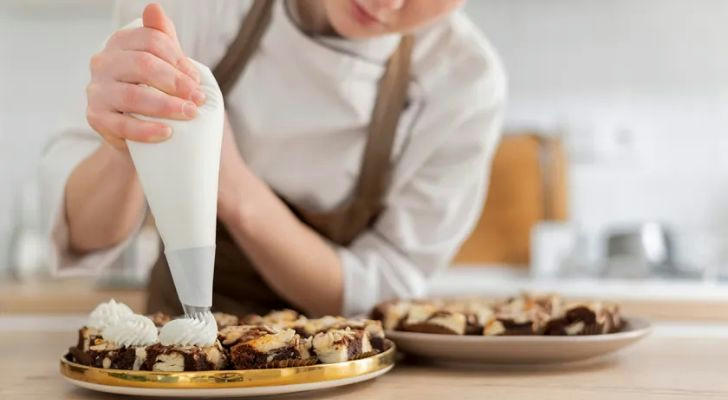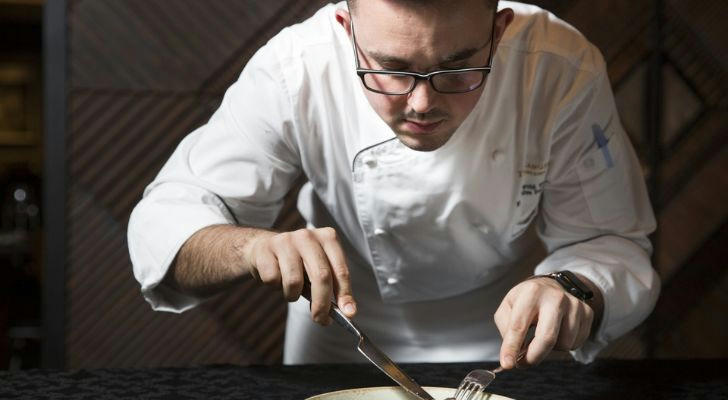Pastry Certification: A Guarantee of Quality and Professionalism in the Baking Industry

In the world of baking, where the aroma of freshly baked bread and the sight of beautifully decorated cakes entice customers, the role of a certified pastry chef is becoming increasingly vital. Pastry certification is more than just a piece of paper; it is a testament to the skills, knowledge, and dedication of professionals in the baking industry. As the demand for high-quality baked goods continues to rise, certification serves as a crucial benchmark for both employers and consumers, ensuring that the products they enjoy meet the highest standards of quality and craftsmanship.
The Importance of Certification
Pastry certification is a mark of distinction that signifies a pastry chef's expertise and commitment to excellence. In an industry where the smallest details can make a significant difference, certification provides a clear indication of a chef's ability to consistently produce high-quality baked goods. Certified pastry chefs have undergone rigorous training and testing, covering a wide range of baking techniques, ingredients, and food safety regulations. This comprehensive education ensures that they are well-equipped to handle the challenges of the baking industry and deliver products that meet or exceed customer expectations.
For employers, hiring certified pastry chefs offers several advantages. Certified professionals bring a level of reliability and professionalism to the workplace, reducing the risk of errors and inconsistencies in the production process. They are also more likely to stay updated with the latest trends and innovations in baking, allowing businesses to stay competitive and offer unique products to their customers. In addition, certification can enhance a company's reputation, as it demonstrates a commitment to quality and excellence in their baking practices.
Types of Pastry Certification
There are various types of pastry certifications available, each focusing on specific skills and areas of expertise. Some certifications are general in nature, covering a broad range of baking techniques and principles, while others are more specialized, targeting particular types of baked goods or advanced techniques.
General Pastry Certification
General pastry certifications provide a solid foundation for aspiring pastry chefs. These certifications cover essential topics such as basic baking techniques, ingredient knowledge, food safety, and sanitation. They are ideal for beginners who are just starting their careers in the baking industry and want to build a strong base of knowledge and skills. General certifications can open up entry-level positions in bakeries, hotels, and restaurants, allowing individuals to gain practical experience and further develop their skills.
Advanced Pastry Certification
Advanced pastry certifications are designed for experienced pastry chefs who wish to enhance their skills and knowledge in specific areas. These certifications delve deeper into complex baking techniques, such as creating intricate sugar decorations, mastering the art of chocolate tempering, and working with delicate pastry doughs. Advanced certifications can lead to higher-level positions in the industry, such as head pastry chef or executive pastry chef, where individuals are responsible for overseeing the baking operations and creating innovative menu items.
Specialty Pastry Certification
Specialty pastry certifications focus on particular types of baked goods or baking styles. For example, there are certifications for French pastry, artisan bread making, and gluten-free baking. These certifications allow pastry chefs to specialize in a specific area, making them experts in their chosen field. Specialty certifications can be particularly valuable for chefs who want to work in niche markets or develop a unique brand identity for their baked goods. They can also lead to opportunities for teaching and consulting in specialized areas of baking.

The Certification Process
Obtaining a pastry certification involves a combination of education, practical experience, and passing a certification exam. The process can vary depending on the type of certification and the certifying organization, but generally includes the following steps:
Education and Training
Most pastry certifications require candidates to complete a certain amount of formal education or training. This can be achieved through culinary schools, vocational programs, or online courses. These programs provide a comprehensive curriculum that covers the theoretical and practical aspects of baking. Students learn about the science of baking, the properties of different ingredients, and the techniques used to create a variety of baked goods. They also gain hands-on experience in a professional kitchen setting, allowing them to develop their skills under the guidance of experienced instructors.
Practical Experience
In addition to formal education, many certifications require candidates to have a certain amount of practical experience in the baking industry. This experience can be gained through internships, apprenticeships, or working in professional bakeries or kitchens. Practical experience allows candidates to apply the knowledge and skills they have learned in a real-world setting, further developing their expertise and understanding of the industry. It also provides them with the opportunity to work with different types of equipment and ingredients, as well as to learn from experienced professionals in the field.
Certification Exam
The final step in obtaining a pastry certification is passing a certification exam. These exams are designed to assess a candidate's knowledge and skills in baking. They typically consist of both a written portion and a practical portion. The written exam covers theoretical knowledge, such as baking principles, food safety regulations, and ingredient properties. The practical exam requires candidates to demonstrate their baking skills by creating specific baked goods within a certain time frame. The practical exam is usually conducted by a panel of experienced pastry chefs who evaluate the candidate's technique, creativity, and ability to produce high-quality baked goods.

The Benefits of Certification
Pastry certification offers numerous benefits to both pastry chefs and the baking industry as a whole. For pastry chefs, certification can lead to increased job opportunities and career advancement. Certified pastry chefs are often preferred by employers, as they have demonstrated a higher level of skill and knowledge. This can result in better job prospects, higher positions within a company, and the opportunity to work on more challenging and creative projects. Certification can also lead to increased confidence and pride in one's work, as it is a recognition of their hard work and dedication to the craft.
For the baking industry, certification helps to maintain high standards of quality and professionalism. Certified pastry chefs are more likely to produce consistent and high-quality baked goods, which can enhance the reputation of the industry as a whole. Certification also encourages continuous learning and improvement, as pastry chefs strive to stay updated with the latest trends and techniques in baking. This can lead to innovation and creativity in the industry, as certified professionals bring new ideas and approaches to their work.
Conclusion
Pastry certification is a valuable asset for both pastry chefs and the baking industry. It provides a clear indication of a chef's skills and knowledge, ensuring that they are well-equipped to meet the demands of the industry and deliver high-quality baked goods. With various types of certifications available, pastry chefs can choose the path that best suits their career goals and interests. The certification process, which includes education, practical experience, and passing an exam, ensures that certified pastry chefs have a solid foundation in baking principles and techniques. The benefits of certification are numerous, including increased job opportunities, career advancement, and enhanced industry standards. As the demand for high-quality baked goods continues to grow, pastry certification remains a crucial component in ensuring the excellence and professionalism of the baking industry.
